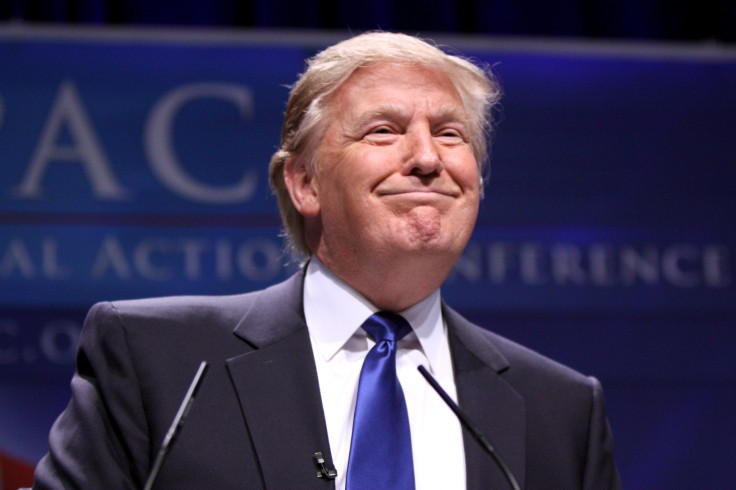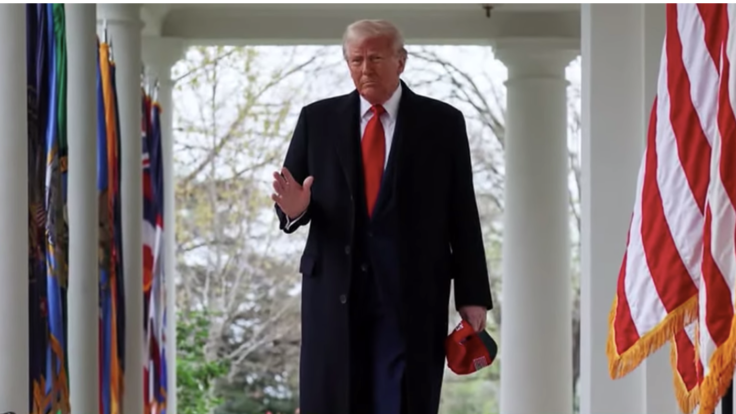Rule Change Rumblings: Filibuster Under Fire As Shutdown Drags On

As the federal government shutdown stretches into its fourth week, President Donald Trump is urging Republicans to scrap the Senate filibuster, a centuries-old rule that requires 60 votes to pass most legislation.
The move, if adopted, could change how Washington governs. Trump's call—made on Truth Social—comes as more than 750,000 federal workers face missed paycheques and core services remain frozen.
Trump Pushes GOP To 'Play Their Trump Card'
In a post on his Truth Social platform, Trump wrote that Republicans should 'get rid of the filibuster, and get rid of it, NOW.' He urged the GOP to 'play their Trump card' and end the shutdown unilaterally.
With 53 seats in the Senate, Republicans could approve a spending bill without Democratic support—if the rule were abolished. Trump sees the filibuster as the main obstacle to reopening government on Republican terms.
According to Reuters, Trump's statement came as federal agencies remain shuttered and lawmakers struggle to agree on a short-term funding package.

Shutdown Fallout: Real-World Costs Mount
The impasse began on 1 October, after Congress failed to pass a continuing resolution. A GOP-backed bill fell short of the 60 votes needed under Senate rules.
Senate Majority Leader Chuck Schumer warned the shutdown could drag into November. 'Americans will be aghast,' he said, as health and subsidy programmes run dry.
- Economic strain: Small businesses near federal offices report collapsing sales.
- Human impact: Families relying on SNAP face delayed benefits; a Maine heating-oil supplier told Fox 34 it was 'waiting on federal aid that may not come in time.'
Every day without a deal deepens economic and social pain.
What Is The Filibuster--and Why Does It Matter Now?
The Senate filibuster is a long-standing parliamentary rule that requires 60 votes to close debate and proceed to a final vote on most legislation.
Supporters argue that it protects minority rights and encourages compromise, while critics contend that it has become a tool of obstruction.
The Associated Press reported that newly installed Senate Majority Leader John Thune has vowed to preserve the rule, describing it as 'a cornerstone of the Senate's deliberative nature.'
But for Trump and some of his allies, the rule now represents the biggest obstacle to ending the shutdown.
'It's time to stop the 60-vote nonsense,' one Republican strategist told Reuters, claiming Democrats were using the rule to 'run out the clock.'
GOP Split Over Scrapping The Rule
Despite Trump's push, Senate Republicans remain divided over whether to eliminate the filibuster.
Many party veterans, including Minority Leader Mitch McConnell, warn that doing so would 'break the institution' and backfire when Democrats regain control.
As Politico noted, McConnell has repeatedly defended the rule, arguing that the Senate's role as a 'cooling saucer' depends on the filibuster's ability to slow down hasty legislation.
'If you destroy the filibuster,' McConnell said in a prior floor speech, 'you destroy the Senate.'
Democrats, for their part, have mainly avoided calls to abolish the rule in the current debate, although some progressives have suggested reforming it for budgetary measures.
Former Vice President Kamala Harris previously supported ending the filibuster to advance national abortion rights, a move Republicans branded as an institutional overreach.
Institutional Change or Short-Term Fix?
With no funding deal in sight, pressure is building for both parties to reconsider long-standing Senate procedures. Analysts warn that even discussing a rule change during a crisis could have lasting political consequences.
'The Senate's rules were designed to protect debate, not paralyse governance,' said a congressional historian quoted by Reuters.
'If this shutdown ends because one side abandons the filibuster, we may be witnessing a structural shift in how Washington governs.'
As the shutdown drags on and frustration mounts among furloughed workers and ordinary citizens, the filibuster — once viewed as a symbol of thoughtful deliberation — is quickly becoming a symbol of dysfunction in a government struggling to function at all.
Conclusion
As federal workers wait for pay and public patience wears thin, the question looms: will Washington break a 200-year rule to fix a 30-day impasse?
Trump's push to kill the filibuster may prove either a temporary tactic—or a turning point in how America governs itself.
© Copyright IBTimes 2025. All rights reserved.





















